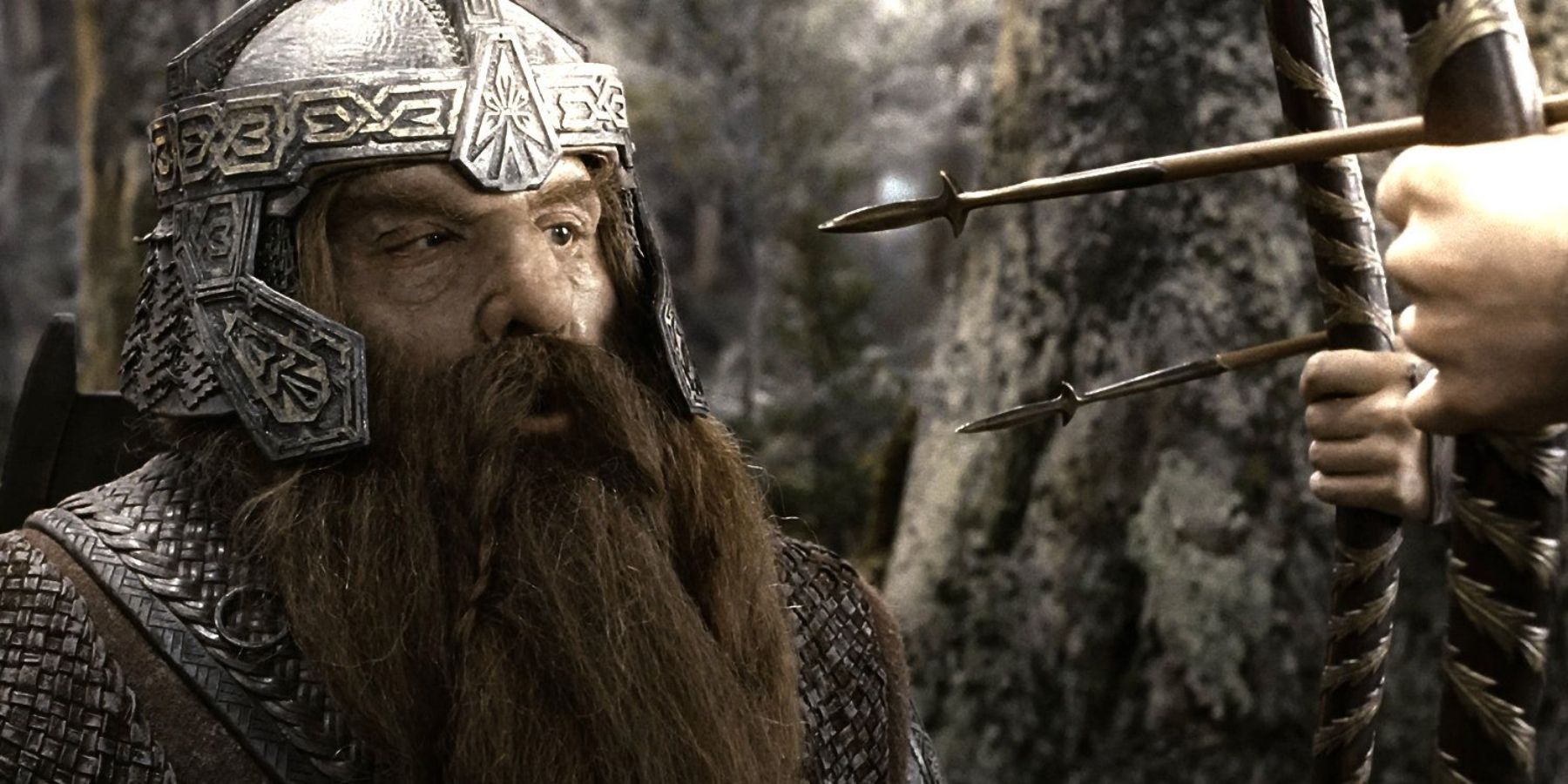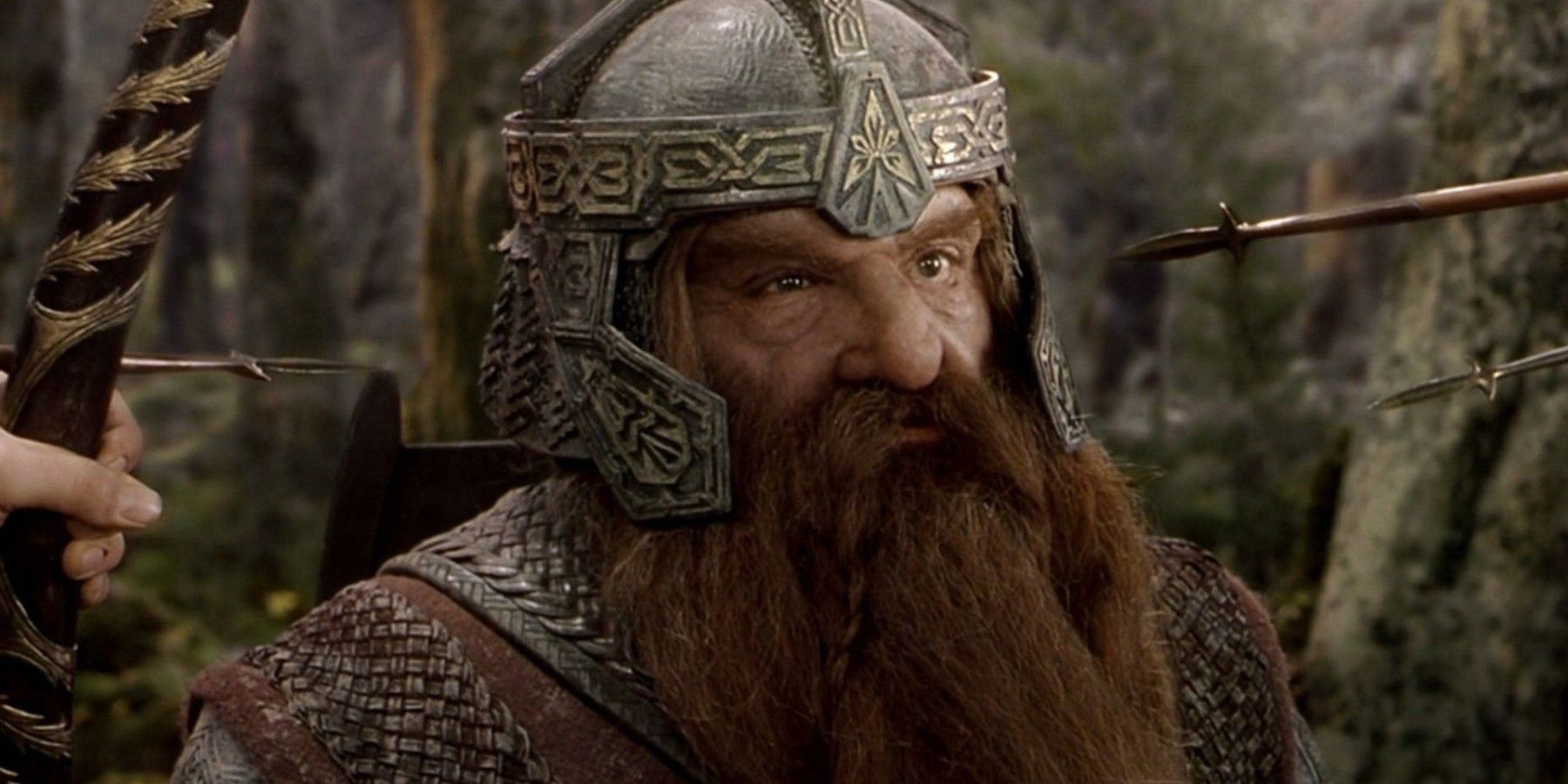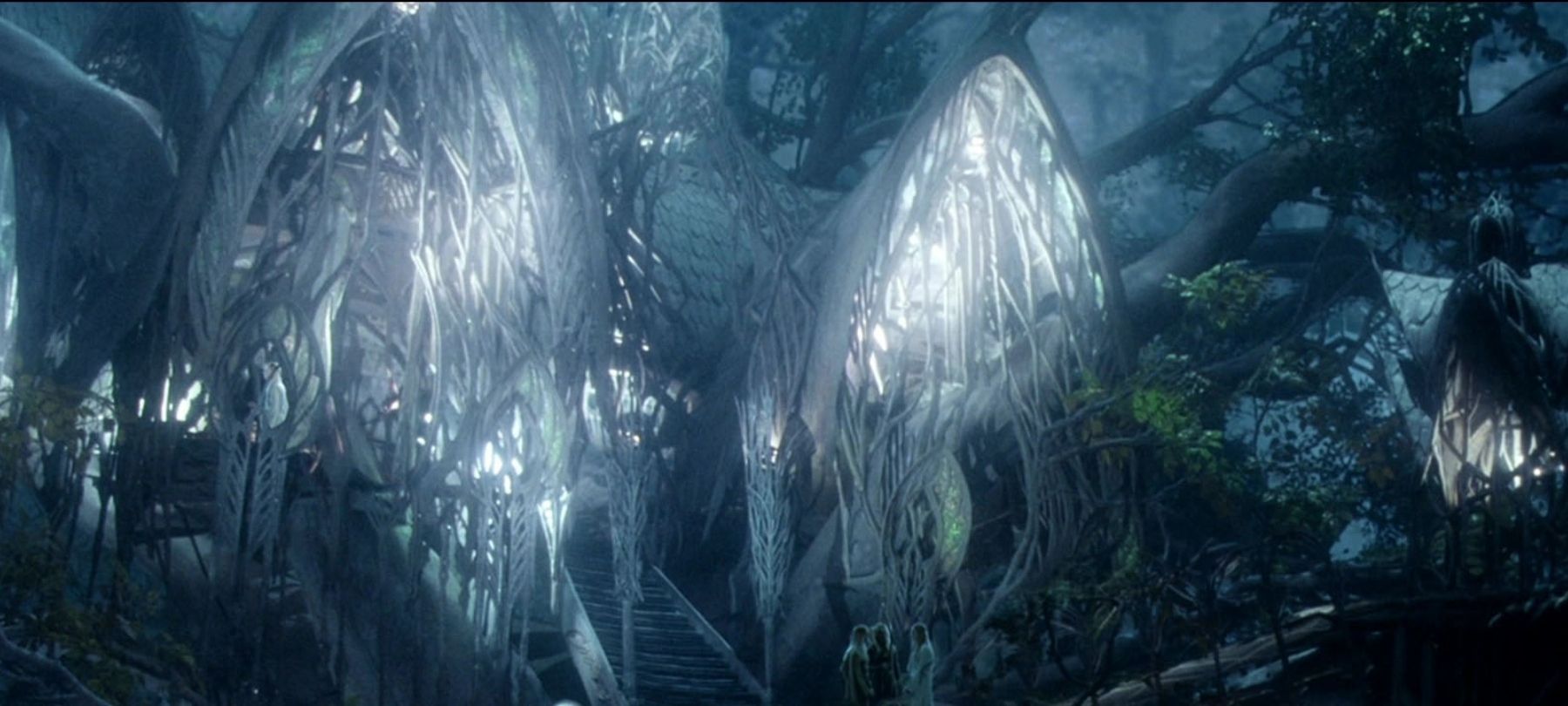Towards the end of Peter Jackson’s 2001 film adaptation of The Fellowship of the Ring, the nine companions who set out from Rivendell are torn asunder when they are forced to abandon Bill The Pony and enter the Mines of Moria, a once glorious Dwarven settlement that has been taken over by orcs.
When the remaining eight members of the fellowship, who barely make it out of the mines alive, arrive at the boundaries of Lothlorien, the ancient woodland realm where the Lady Galadriel and her husband Celeborn reside, they are ambushed in the trees by a hoard of elven archers. They are taken to meet with the rulers, who are keen for news of their quest to destroy the ring of power, and defeat the evil Lord Sauron who is linked to it.
It is a testing time for the group, as they have just suffered the devastating loss of Gandalf the Grey, the wizard of their company who fell from the bridge of Khazad-Dum in an attempt to stop the fiery wrath of a Balrog. The elves later compose a lament to Gandalf, sung from words taken out of the chapter in the book ‘Galadriel’s Mirror’, as none of them yet know that Gandalf will return to Middle Earth as Gandalf the White. He still has a key and instrumental part to play in the fights to come and in the eventual defeat of the dark lord. However, despite the fact that the group is mourning, and has just escaped the terrible experience of fighting the scuttling orcs and their roaring cave-troll, this does not excuse the behavior of one member in particular: the Dwarf Gimli.
It has long been known that there is a hatred that exists between dwarves and elves, a rivalry that has existed since before the days of the Misty Mountains, featured in the Hobbit films. Although the presentation of elves is different in the films than it is in the books, this is one thing that remains the same, and is evident when the elves who capture the company say "The Dwarf breathes so loud we could have shot him in the dark."
This disdainful and unnecessary remark is a prime example of the sourness that exists between the two races, and accounts in some senses for Gimli’s rudeness to his hosts. Haldir, one of the high-ranking elves of the kingdom offers welcome to Legolas, Prince of Mirkwood which lies north of Fangorn Forest, and to Aragorn, who he states is ‘known to us.’ This could be as a member of the Dunedain ranger, who has traveled many realms and seen many kingdoms, or it could be through his connection with Arwen of Rivendell, whose mother is the daughter of Galadriel.
But when it comes to greeting Gimli, Haldir sneers "We haven’t had dealings with Dwarves since the dark ages" which could be suggesting that the dwarves are a dark and primitive species, somehow lesser than the elven race, or could be referring to the time when Dale, the kingdom of Erebor in the Lonely Mountain was burned down and overtaken by Smaug, and the dwarves were pushed out of their homeland.
Either way, Gimli of course takes offense at this, and replies with "Ishkhaqwi ai durugnul" which means "I spit on your grave" in the common tongue. It is said in an old form of Dwarvish, known as Khuzdul. There is very little reference to the language in any of Tolkien’s works, but it is thought to be most similar to German. Despite the language not being common practice anymore, both Haldir and Aragorn clearly understand it and are taken aback by the insult to one who is offering them sanctuary and rest, despite his rudeness to the dwarf also. However, the insult becomes especially ill-spoken in retrospect, considering that Haldir does in fact die, and he dies fighting side by side with members of the fellowship in the defense of Helm’s Deep, the keep of Rohan, including Gimli.
It could be argued that Gimli later regrets his insult, after being given 3 golden hairs from Lady Galadriel, a rare and precious gift, and especially after he learns to see Legolas as a friend. The two continue a friendly competition throughout the battles in the rest of the War of the Ring, keeping count of how many enemies they have killed, and teasing each other about details such as Gimli being too short to see over the wall of the keep, but ultimately they come to gain a mutual respect and love for one another after everything they face. In this way, they go part-way to overcoming the ancient antagonism and conflict of their bloodlines, and changing the perception of future generations who hear tales told of the elf and the dwarf who fought side by side.



